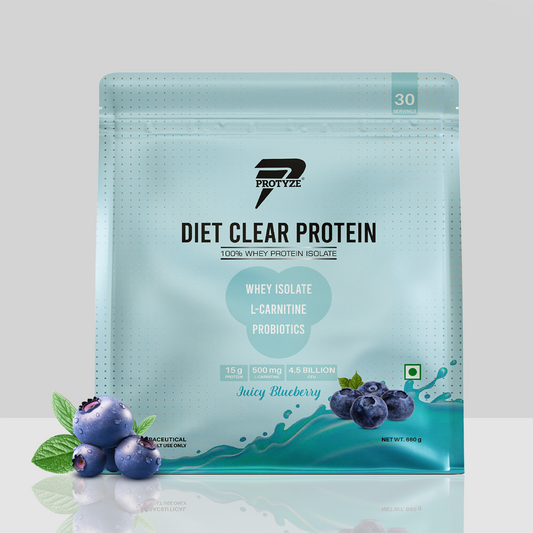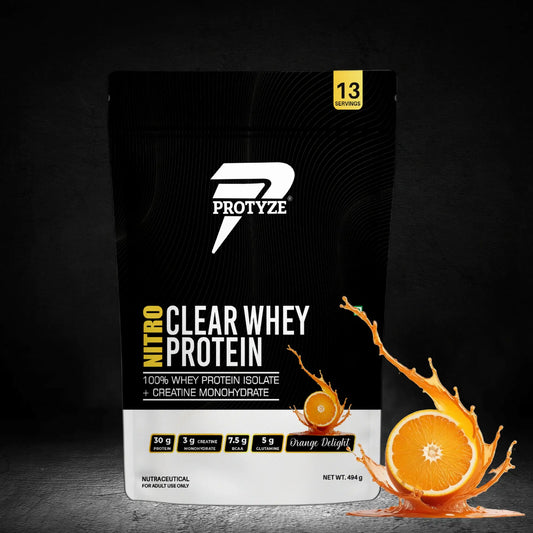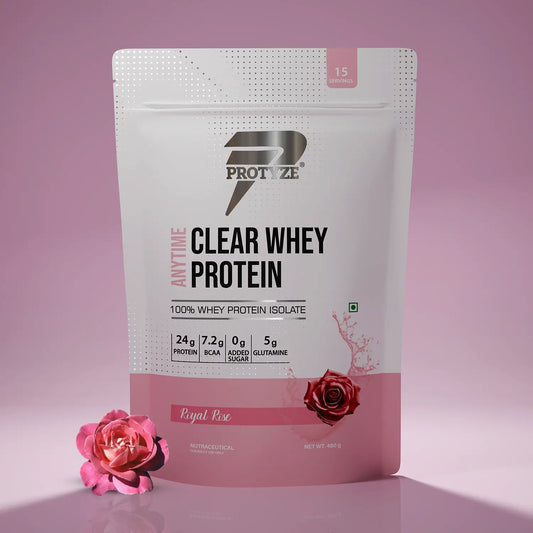If you’re vegetarian and trying to get enough protein, chances are paneer and soya chunks are already on your plate. Both are protein-rich, easy to find in India, and loved by people looking to build muscle, lose fat, or simply eat healthier. But here’s the big question—which one is actually better for your goals?
Paneer packs quality dairy protein and extra nutrients, while soya chunks deliver a budget-friendly protein punch with almost no fat. Each has its own strengths, and the better choice depends on what you want—muscle gain, fat loss, or a lactose-free option.
In this article, we’ll compare paneer and soya chunks in terms of protein content, quality, digestion, health benefits, and more. Plus, we’ll share how adding a clear whey protein like Protyze Anytime can make hitting your daily protein target much easier—without the heaviness of dairy or the bloating from soya.
1. Protein Content – Who Wins?
Paneer
Paneer is a dairy product made from milk. On average, 100g of paneer contains 18–20g of protein. However, it also has a decent amount of fat, which increases the calories.
Soya Chunks
Soya chunks are made from defatted soy flour and are extremely protein-dense—about 52g protein per 100g (dry weight). They are low in fat and high in dietary fiber, making them very calorie-efficient for protein intake.
Verdict: If you only look at protein percentage, soya chunks win. But that’s not the whole story.
2. Amino Acid Profile & Quality of Protein
Protein quality matters—not just the quantity. High-quality protein contains all essential amino acids your body needs.
Paneer
Being an animal-based protein, paneer has a complete amino acid profile and is especially rich in leucine, an amino acid crucial for muscle growth.
Soya Chunks
Soya protein is also a complete protein, but it has slightly lower levels of some amino acids like methionine compared to animal proteins. Still, it’s a great plant-based option.
Verdict: Paneer has a slight edge in amino acid quality, but soya is still an excellent plant-based complete protein.
3. Digestibility
How well your body absorbs protein impacts its effectiveness.
Paneer
Dairy proteins like casein in paneer are highly digestible and provide a slow release of amino acids, making them great for overnight recovery.
Soya Chunks
Soya protein is also well-digested, but some people may experience bloating or gas due to its fiber content and certain plant compounds.
Verdict: Paneer is gentler on digestion for most people, but soya is still fine if you tolerate it well.
4. Health Benefits
Paneer
-
Rich in calcium for bone health
-
Good fat content for hormone balance
-
Supports muscle gain
Soya Chunks
-
High in protein with low fat
-
Rich in fiber for digestion
-
May help in lowering cholesterol
Both have their own health perks—paneer is nutrient-rich, soya is lean and fiber-packed.
5. Which Should You Choose?
The best choice depends on your goals:
-
For muscle gain & recovery: Paneer can be a great option, especially at night, because of its slow-digesting protein.
-
For weight loss & high protein on a budget: Soya chunks offer more protein per calorie and are very affordable.
-
For lactose-intolerant people: Soya chunks are the better choice, as paneer contains lactose.
Which One Should You Choose: Paneer or Soya Chunks?
The best choice depends on your goals:
-
For muscle gain & recovery: Paneer can be a great option, especially at night, because of its slow-digesting protein.
-
For weight loss & high protein on a budget: Soya chunks offer more protein per calorie and are very affordable.
-
For lactose-intolerant people: Soya chunks are the better choice, as paneer contains lactose.
Another Better Way of Consuming Protein
While both paneer and soya chunks are great, they have one thing in common—you need to eat a lot to meet your protein needs. That’s where clear whey protein can make your life easier.
For example, Protyze Anytime Clear Whey Protein Isolate delivers 24g of high-quality, fast-digesting protein in a light, refreshing drink—without the heaviness of dairy or the bloating sometimes caused by soya. It’s perfect for filling the gaps in your daily protein intake, whether you prefer paneer, soya, or both in your meals.
Paneer vs Soya Chunks vs Protyze Anytime Clear Whey Protein
| Criteria | Paneer | Soya | Protyze Anytime Clear Whey Protein |
|---|---|---|---|
| Protein Content (per 100g / serving) | 18–20g protein | ~52g protein (dry weight) | 24g protein per scoop |
| Fat Content | Low to high | Very low | 0g fat |
| Calories | Higher due to fat | Low | Low-calorie |
| Amino Acid Profile | Rich in leucine | Complete, slightly lower methionine | high leucine for muscle growth |
| Digestion | Gentle, slow | May cause bloating for some | Fast-digest, light on stomach |
| Best For | Muscle gain | Weight loss, high-protein budget option | Lean muscle gain, quick recovery |
| Extra Nutrients | High in calcium | High in fiber, may lower cholesterol | Added hydration |
| Lactose Content | Contains lactose | Lactose-free | Lactose-free |
| Taste & Texture | Soft, creamy | Chewy, spongy | Light, juice-like, fruity flavors |
Wrapping up
-
Paneer: Best for slow-digesting, high-quality dairy protein with added nutrients.
-
Soya Chunks: Best for plant-based, high-protein, low-fat needs.
-
Anytime Clear Whey Protein: Best for quick, easy, and complete protein without heavy calories.
Instead of choosing one over the other, you can include both in your diet, along with a high-quality protein supplement, to ensure you’re getting all the benefits—strength, recovery, and health.





